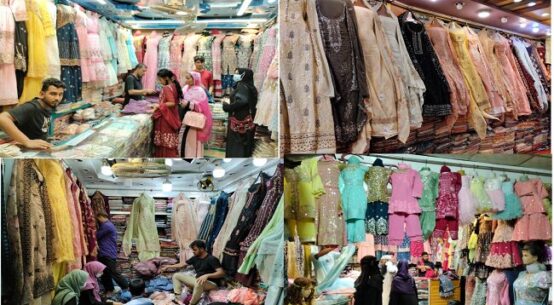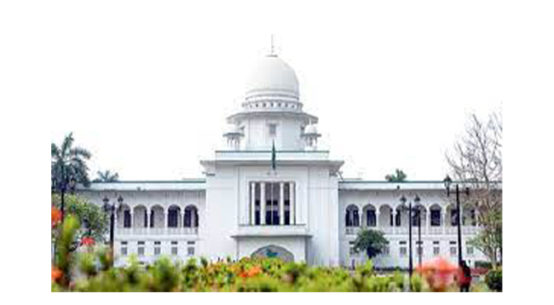
As the government has planned to establish a vaccine institute, experts have appreciated it as a timely and bold move as they think Bangladesh has huge potential to grab the international vaccine market like medicines.
They also said the local and international vaccine markets will continue to grow as vaccine safety is now becoming as important as food security with the emergence of various diseases, flues and viruses like Covid.
The analysts think an international standard vaccine institute will not only be a gamechanger for the country’s economy but also for its image and reputation building globally.
They said the government should focus on developing skilled human resources alongside setting up the institutes to run it effectively and produce quality vaccines as Bangladesh’s many public institutions fall apart only because of poor management and lack of efficient manpower.
On June 16 last, Prime Minister Sheikh Hasina announced in parliament that the government is going to set up an international vaccine institute to produce vaccines, including the Covid-19 one, in Bangladesh.
Later, the Health Ministry formed a committee, headed by Director General of the Directorate General of Health Services (DGHS) Prof Dr ABM Khurshid Alam, to examine the feasibility of the vaccine institute.
The committee includes the Director General of the Directorate General of Drug Administration, IEDCR’s director, BSMMU VC, two representatives from the DGHS and a representative from the ministry.
A member of the committee, wishing anonymity, said the government is moving forward with short and long-term plans for establishing the vaccine institute.
As per the short-term plan, he said, the vaccine materials or bulk vaccines will be imported from abroad initially for supplying those to the local market through bottling in the EDCL’s factory. “It’ll take around a year to implement this plan. The government also has a long-term plan to set up a full-fledged vaccine institute to produce Covid and other vaccines. It’ll take at least three years to implement this plan.”
Talking to UNB, Prof Dr Md Sharfuddin Ahmed, VC of Bangabandhu Sheikh Mujib Medical University (BSMMU), said their committee already had a few meetings and they decided to set up the vaccine institute in the factory of the state-owned Essential Drugs Company Limited’s (EDCL) in Gopalganj.
He said they have an initial plan to use the infrastructure of the EDCL as those are suitable for establishing the vaccine at the initial stage. “We now need not to construct any new buildings. So, it’ll save our time and make our work easier to set up the institute.”
The VC said the institute will be set up to produce Covid vaccines alongside the ones which have huge demand both at home and abroad.
Sharfuddin said the activities on establishing the institute will formally begin in the coming month.
The BSMMU VC said Bangladesh needs a well-equipped and modern vaccine institute as vaccines have a huge demand across the world. “I think we’ll be able to export vaccines like our medicines to many countries, except some developed ones.”
Besides, he said, no one still can say when the Covid will be eliminated from the world. “So, it may require giving booster doses of Covid vaccines from next year. So, I think the vaccine institute has huge potential in our country.”
Prof Muzaherul Huq, a former adviser to WHO South-East Asia region, said Bangladesh has the demand for many vaccines, including influenza, pneumonia, Tetanus, and some other ones like tuberculosis, polio, diphtheria, whooping cough, tetanus and measles for children.
“So, if we can set up a full-fledged vaccine institute, we’ll be able to meet the local vaccine demands and export those to other countries. It’ll immensely contribute to the country’s economy. We now spend huge money on vaccine import,” he said.
Public health expert MH Chowdhury (Lenin), chairman of the medicine department at the Health and Hope Hospital, said the vaccine is now a very lucrative business as it has a huge demand across the world, including in Bangladesh.
He said Bangladeshi medicines are well-reputed across the world and the country is now exporting medicines to around 150 countries. “So, if we start producing quality vaccines, we’ll be easily able to export the vaccines in most of these countries.”
Prof Muzaherul said, “We had a good experience of producing quality vaccines in our country through the Institute of Public Health (IPH). It’s a reputed institution across Asia as it used to produce DPT, polio and cholera vaccines, but we lost the capacity to produce vaccines by crippling this institute due to negligence.”
Muzaherul, a former director of the IPH, said the government can now revive the IPH as an international vaccine institute instead of establishing another institute. “IPH has enough land and establishments to revive it again easily. We can sign an agreement with South Korea, China or Russia for technology transfer to revitalise IPH within a short time with a group of trained manpower.”
He said it is still possible to turn IPH into a better institute than India’s Serum if the government comes up with a well-thought-out plan and required investment.
Dr Be-Nazir Ahmed, former director (Disease Control) of DGHS, said there are a lot of challenges in establishing a vaccine institute.
“First of all, our experience with public organisations is not good. IPH could have remained in place as a strong institute like Serum, but we destroyed it. EDCL could be the leading drug company in the country, but we couldn’t do that,” he said.
“The weakness in management is the major reason behind the poor performance of the public institutions. On other hand, the private companies don’t want the progress of the public institutions; rather they make efforts in various ways to weaken them to establish their control over the market,” Dr Be-Nazir observed.
He said it is also a big challenge to create skilled manpower for the vaccine institute and the government should start focusing on it right now. “If the qualified people are not there in the institute, it won’t be possible to produce quality vaccines, no matter how much-sophisticated machines and equipment we install there.”
The expert, however, said some agricultural research institutes are doing an excellent job in introducing new high-yielding paddy, crops, and fruits variety. So, we hope our vaccine institute will also turn out to be a successful venture.”


